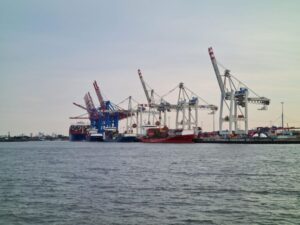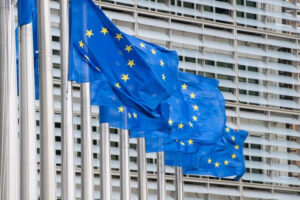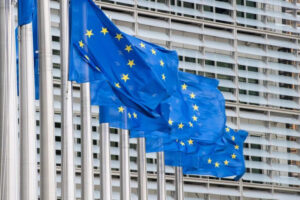EU Commission’s €750 billion recovery plan to make sustainable transportation a priority
The European Commission has unveiled a €750 billion recovery plan aimed at ensuring economic recovery from the impacts of the COVID-19 crisis.

The Next Generation EU fund consists of allocations for € 500 billion and loans for € 250 billion. Combined with targeted reinforcements to the long-term EU budget for 2021-2027, the fund will bring the total financial firepower of the EU budget to €1.85 trillion.

“Next Generation EU strengthens the European Green Deal and Horizon Europe – and will invest in key infrastructure from 5G to housing renovation,” Ursula von der Leyen, President of the EC, said at a plenary session on Wednesday, May 27.
“At the same time, we must ensure that the transition to a climate-neutral economy leaves nobody behind.”
As explained, the grants will be channeled through the European budget, limiting each country’s contribution according to a fixed formula.
“The grants will be clear investments in our European priorities: Strengthening our digital single market, European Green Deal and resilience,” she added.
In its communication to the European Parliament, European Council, Council of the European Union, and the Committee of Regions, the European Commission acknowledged the fact that, especially in this period of health emergency, the transportation industry has played an essential role in value chains. It also acknowledged that in order to create new jobs, it is essential to boost the production and use not only of motor vehicles but also of sustainable ships.
The recovery plan proposes to reinforce programs such as the European Maritime and Fisheries Fund, the Connecting Europe Facility fund and the European Defense Fund. Lastly, a sectoral distribution of the gaps that will have to be filled by means of annual 20 billion euro investments aimed at achieving the “green” transition of “vehicles, rolling stock, ships and aircraft has also been proposed.
“The Italian shipbuilding industry, which we represent, is pleased to note that the European Recovery Plan announced by EU Commission President Ursula Von der Leyen explicitly mentions this sector as a priority segment for the investments envisaged in the Recovery Plan. This plan has two main goals,” President of the association representing Italy’s shipbuilding industry, Assonave, Vincenzo Petrone commented.
“The first is to boost the production and use of modern, environmentally sustainable ships, with relevant positive effects in terms of job creation and mobility. The second goal is to make up the deficit of investments needed to accelerate the “green” transition of European ships to account for the challenging environmental protection objectives that Europe intends to achieve by the year 2030. Assonave believes that, if streamlined and properly financed, the Recovery Plan can become an efficient means to achieve the growth objectives that the European shipbuilding industry has set for itself in the challenge against the tough Asian industry.”
Brussels-based environmental NGO Transport & Environment said that the €1.85 trillion recovery plan was a historic step forward for the European Union that could spark a green, healthy, and just recovery.
“President von der Leyen proposes ‘recovery bonds’ to finance a ‘Next Generation EU’ plan to ensure no one is left behind by stimulus measures. €500 billion of these bonds would be spent as grants on national projects that could help accelerate the green transition. The plan would also give €250 billion in loans for projects like green infrastructure and technologies,” the NGO added.
According to William Todts, T&E’s executive director, there is a worrying lack of detail on what green investment actually means.
“Spending big on shared and electric mobility is the right thing to do, but this plan leaves the door wide open for polluting engines and even airplanes to get stimulus money. That’s completely unacceptable,” he said.
To date 1.3 million citizens have signed on to a ‘green and just recovery’ appeal, which warns against EU and national governments bailing out polluting industries involved in sectors such as gas, oil and coal, chemicals, cars and airlines. Any stimulus investments must be conditional on companies’ alignment with social, environmental and climate objectives, T&E believes.
“The EU’s stimulus plan is a once in a generation opportunity. If we get this right we’ll emerge in a Europe with healthy and livable cities, a cutting-edge automotive industry and millions of new green jobs. But if we blow this chance, we can forget about the Green Deal or winning the global technology race. The stakes couldn’t possibly be higher,” Todts concluded.






